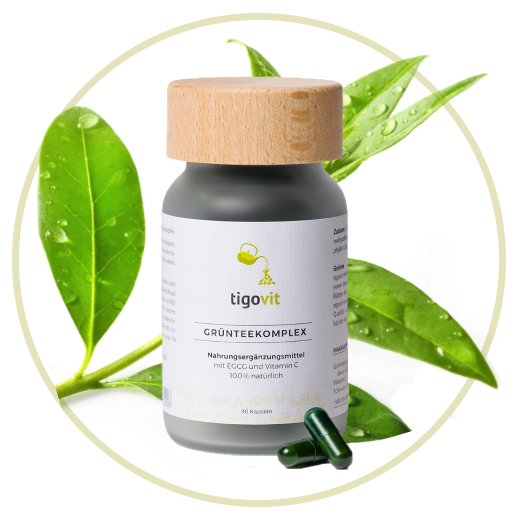Author: Iris Sretenovic
Fermented food are subject to a chemical process called fermentation. Fermentation occurs naturally in certain foods and is a process that humans have used for thousands of years. During this process, sugars and carbohydrates are converted into acid or alcohol. This process preserves food and produces useful enzymes, B vitamins, various Types of probiotics and Omega-3 fatty acids. Omega-3 fatty acids are a good source of lignans compounds that can have a mildly oestrogenic effect. When a mildly oestrogenic substance in your body takes the place of naturally strong oestrogen at the oestrogen receptors in the breast, this weak substance can act like an anti-oestrogen. In this way, lignans help fight oestrogen-dependent breast cancer.
Fermentation - an ancient method of food preservation
In the past, the positive effects of fermented foods on health were unknown, so people mainly used fermentation to preserve food, increase shelf life and improve taste. Many ancient doctors started using it to treat certain diseases. Foods enriched with probiotics are one of the most important factors of a healthy diet and lifestyle. In the following, we will try to tell you what benefits fermented foods have for our bodies. At the beginning of the 20th century, the Nobel Prize winner Ilia Ilyich Mechinikov noticed the extraordinarily
good health of part of the Bulgarian population who eat foods enriched with natural probiotics on a daily basis. He named the bacterial species that made up most of their fermented products Lactobacillus bulgaricus. He theorised that
probiotic bacteria could have a much greater impact on human health than many pathogenic strains of bacteria.
Fermented foods
Everyone knows some fermented foods like beer or sauerkraut, but also less popular fermented foods or drinks like kefir and kombucha. Most people don't know that fermented foods are full of healthy probiotics: good, live bacteria that support optimal function in the digestive tract. Probiotics
are considered important for all aspects of our health, including our immune system. Some scientists say that up to 80 % of our immune system is located in the gut, so a balance of probiotics can help prevent and treat diseases and
can contribute to infections. In addition to the specific sour taste, foods obtained through fermentation are very healthy and should be consumed in as large quantities as possible. They usually contain
Vitamin K and probioticswhich are of great importance for the health of the digestive tract and general health. Fermented foods have been increasingly eaten worldwide for several years, from
Sauerkraut in Germany to Kimchi in Korea. So it's time to explore the benefits of this probiotic trend and see what this superfood can do for you.
5 things fermented foods help us with
Fermented foods can help you with:
- Improved digestive health
- Strengthening the immune system
- Cleansing the body of dangerous chemicals
- Increased nutrient uptake
- In the reduction of inflammation in the body
Advantages of traditionally fermented foods
Natto
Fermented soy comes in three main forms: Miso, Tempeh and Natto. Natto is a traditional Japanese food made from fermented soy. Natto soybeans are steamed and then fermented with healthy bacteria known as Bacillus subtilis. The bacterium Bacillus
subtilis is used to make natto, which is rich in proteolytic enzymes and vitamin K2. Miso and tempeh often involve the fermentation of brown rice and barley with two unique probiotic yeast types. These yeasts increase the bioavailability of amino acids and produce large amounts of B vitamins.
Sauerkraut, on the other hand, is produced by fermenting cabbage, usually in vinegar. Raw cabbage naturally contains probiotics and enzymes that proliferate during fermentation. Fresh sauerkraut (not canned) is also a fantastic source of live enzymes and active strains
of probiotics such as lactobacilli and pediococci. Kimchi is mostly made from Chinese cabbage. There are many different variations of
Kimchi used from cucumbers, aubergines, leeks, radishes and other seasonal vegetables. They are often prepared with a combination of fermented vegetables that give them unique antioxidants, live enzymes and a special organism called Lactobacillus
kimchii, adds.
The 10 healthiest fermented foods:
This list follows no particular order, as each of the foods mentioned is equally beneficial to the microbiome when properly prepared and consumed in optimal condition. If any of the foods smell putrid or have mould, the affected
places should be removed and disposed of.
- FERMENTED SOYBEAN PRODUCTS (MISO, NATTO)
- KIMCHI
- SAUERKRAUT
- FERMENTED GINGER
- SOUR CUCUMBERS
- SAURE ROUVES
- GHERKINS (ACID-MIXED VEGETABLES)
- KEFIR
- YOGHURT FROM COCONUT MILK
- VEGETABLE CHEESE
It is best to eat a smaller amount of fermented food a day and slowly increase this over time, for example adding 1 tablespoon more each week. You may feel that you need to eat 1 cup of fermented food at a time.
but don't do it right at the beginning as it could cause diarrhoea!
The best fermenting drinks:
Fermented kombucha tea
The same application principle applies to drinks as to food. So start slowly and methodically increasing the dose by listening to your body, i.e. at the pace at which your body tolerates it best. If you take too much too quickly, you may experience diarrhoea, flatulence and a bloated stomach.
- APFELESSIG
- KOMBUCHA
- KEFIR FROM COCONUT WATER
- MOLKE
- VEGETABLE WHEY
- ORGANIC RED WINE
- FERMENTED HERBAL TEAS
- SOUR BEET JUICE
- SOUR JUICE
Histamine - Intolerance
If someone reacts badly to fermented foods, this can be a sign of histamine intolerance. Most people respond very well to small amounts and the gradual increase in fermented foods. Some people, on the other hand, develop a skin rash or eczema, swollen eyelids or headaches, all of which can be associated with histamine intolerance. For example, some people tolerate avocados, berries or lemons quite well, but react violently to any kind of fermented food or wine.
As histamine levels decrease, a person with histamine intolerance improves gut health, reduces inflammation, improves liver function and stabilises the adrenal glands so that they can gradually tolerate a greater amount of histamine over time. For some, this would mean they can eat a small amount of foods with histamine. For others, however, it means that they have to limit their intake of certain foods.
Advantages for health
One of the most important health benefits of fermented foods is their contribution to living microbes - supposedly "good" microbes - existing colonies in the gut. Collectively called the microbiome, these microbes have a powerful effect on our bodies; when they are incapacitated, they are associated with gastrointestinal diseases such as ulcerative colitis and irritable bowel syndrome, immune diseases such as allergies and type 1 diabetes, as well as Metabolic and metabolic diseases including type 2 diabetes and obesity. They are even said to influence mental disorders. Probiotics are living microorganisms - such as bacteria, yeasts and fungi - that can have a positive effect on health in ideal quantities. They occur naturally in some fermented foods and are also available in tablet or capsule form. Studies have shown that they can improve digestion and immune function. Strains of lactobacilli and bifidobacteria are the most commonly used probiotics because they can survive passage through the digestive system into the gut. They are mainly
Source:
https://www.ncbi.nlm.nih.gov/pmc/articles/PMC1151822/
https://pubmed.ncbi.nlm.nih.gov/23894906/
https://www.sciencedirect.com/science/article/pii/S1319016413000819
https://pubmed.ncbi.nlm.nih.gov/30863384/
https://pubmed.ncbi.nlm.nih.gov/21165702/
https://pubmed.ncbi.nlm.nih.gov/21165702/
https://pubmed.ncbi.nlm.nih.gov/33233274/






